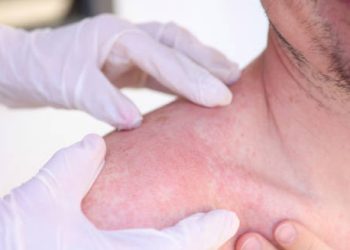In this FAQ section, we tackle some of the most frequently asked questions about Addison’s disease, focusing on aspects of living with the condition, managing daily life, and understanding its broader impact. If you’re newly diagnosed or simply looking for more insight, this guide is here to help.
Do I Need to Adjust My Diet with Addison’s Disease?
Yes, dietary adjustments may be recommended. Individuals with Addison’s disease often have a higher need for sodium, especially during times of stress or illness.
A balanced diet with adequate salt intake, along with plenty of hydration, is essential. Your healthcare provider can offer personalized dietary guidelines based on your specific health needs.
What’s the Relationship Between Addison’s Disease and Stress?
Stress can have a significant impact on Addison’s disease. When you’re under physical or emotional stress, your body’s need for cortisol increases.
People with Addison’s disease may need extra doses of their prescribed medication during times of high stress, like an illness, surgery, or personal crisis. Always consult your healthcare provider for guidance on managing stress and adjusting medication as needed.
Can Addison’s Disease Be Managed Without Medication?
Unfortunately, there is no natural way to manage Addison’s disease without medication. The condition requires lifelong hormone replacement therapy to replace the cortisol and aldosterone that your adrenal glands can’t produce.
You must take your medication regularly as prescribed to maintain normal body functions and prevent an adrenal crisis.
Can I Lead a Normal Life with Addison’s Disease?
Yes, many people with Addison’s disease live full, active lives. With proper treatment and lifestyle management, including stress reduction, regular medical check-ups, and adherence to prescribed medication, people with Addison’s disease can lead normal lives.
Staying on top of your health and being mindful of triggers will help you manage the condition effectively.
Is Addison’s Disease Common?
Doctors consider Addison’s disease rare, diagnosing it in only a small percentage of the population. While it can occur at any age, they most often identify it in adults between 30 and 50 years old.
The disease can affect both men and women equally, although some forms are more prevalent in certain populations, such as those with autoimmune disorders.
How Can I Spot an Addisonian Crisis?
An Addisonian crisis is a medical emergency that occurs when the body is unable to respond to stress due to insufficient cortisol. Signs of an Addisonian crisis include extreme weakness, confusion, abdominal pain, nausea, vomiting, and low blood pressure.
If you experience these symptoms, seek immediate medical attention. Treatment typically involves intravenous fluids and cortisol to stabilize your condition.
Can Addison’s Disease Affect Pregnancy?
Yes, but with proper care, many women with Addison’s disease can have successful pregnancies. It’s important to work closely with your healthcare provider to adjust medication doses during pregnancy.
Regular monitoring and proper hormone replacement therapy can help manage the condition and reduce the risks to both mother and baby.
What Should I Do if I Miss a Dose of My Medication?
When missing a dose of your medication, it is recommended that you take it as soon as you remember. If it’s almost time for your next dose, skip the missed dose — never double up to make up for a missed one. If you’re unsure, contact your healthcare provider for guidance.
Can I Participate in Sports or Exercise with Addison’s Disease?
Yes, individuals with Addison’s disease can participate in sports or exercise, but it’s important to listen to your body and avoid pushing yourself too hard.
Plan your exercise by staying well-hydrated, eating a balanced meal beforehand, and carrying your medication in case you need extra cortisol during physical exertion.
Conclusion
Living with Addison’s disease can present unique challenges, but with the right treatment, lifestyle adjustments, and support, you can lead a healthy and fulfilling life.
If you ever have questions or concerns about your condition, remember that you’re not alone — reach out to your healthcare provider, connect with others, and keep learning about managing Addison’s disease effectively.
👉 Missed an article in the series? You can catch up here:
• Understanding Addison’s Disease
• The Symptoms of Addison’s Disease
• What Causes Addison’s Disease?
• How is Addison’s Disease Diagnosed?
• Addison’s Disease Treatment
Reviewed April 2025. Always consult a professional for individual guidance.


